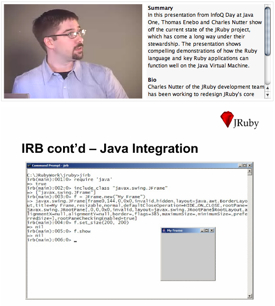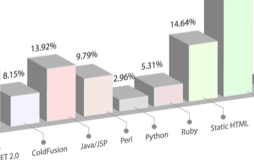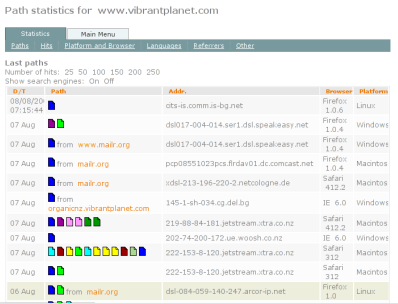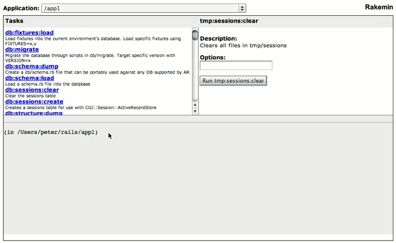
Thomas Enebo and Charles Nutter have put together an online video and slide presentation along with InfoQ about JRuby. As the guys talk about Ruby and JRuby in the video, the slides underneath automatically update with their slides and code examples. Excellent, and especially excellent if you want to learn about what they’re up to with JRuby. Read More




